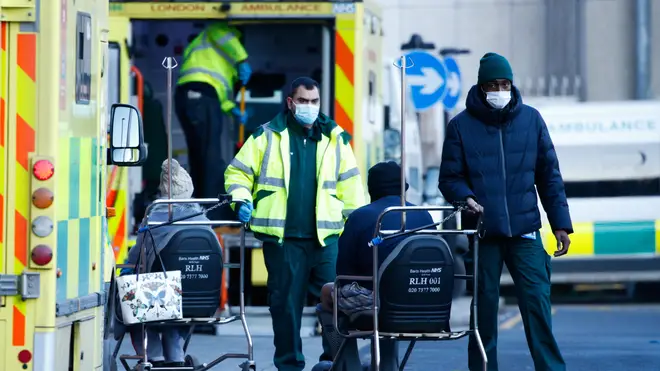
Matthew Wright 7am - 10am
20 April 2021, 10:17

More research must be done into whether vitamin D supplements can help protect against Covid-19, experts have said.
The call comes after a new study found that people taking certain vitamins were less likely to test positive for the virus which causes Covid-19.
Experts at the National Institute for Health and Care Excellence (Nice) have also said previously low levels of vitamin D have been associated with more severe Covid-19 - but it is difficult to know if low vitamin D levels cause poorer outcomes or vice versa.
READ MORE: Plans for Covid booster jabs 'ramping up' as fears grow about mutant variants
READ MORE: Healthy volunteers to get almost £5,000 to be exposed to Covid-19
But health officials in England have said that there is "not enough evidence" to recommend vitamin D supplements solely for preventing Covid-19.
There is already guidance which recommends that anyone over the age of four should consider taking a daily supplement containing 10 micrograms of vitamin D between October and early March to maintain bone and muscle health.
People in the UK do not make enough vitamin D from sunlight in these months.

Now, a new study supports the theory that vitamin D - as well as some other vitamins and probiotics - could help reduce a person's risk of Covid-19.
And the experts have called for a large trail to assess whether some supplements could have a protective effect.
The study, published in the journal BMJ Nutrition Prevention & Health, examined data from more than 445,000 people from the UK, United States and Sweden who contribute to the Zoe Covid-19 Symptom Study app.
READ MORE: More than 10 million people in UK now fully vaccinated against Covid-19
Information on infections as well as dietary supplements were collated.
Among the 372,000 UK participants, researchers found that women taking probiotics, omega-3 fatty acids, multivitamins or vitamin D had a lower risk of being infected with the virus that causes Covid-19 - with the effects ranging from 9% to 14% lower risk among those who took supplements.

No effect was observed for those taking vitamin C, zinc or garlic supplements.
The observation was not seen in men.
Similar findings were also seen in the groups from the US and Sweden.
READ MORE: Patient backlog in hospitals 'could take five years to clear'
The authors, led by academics from King's College London, wrote: "In conclusion, our data show that women taking multivitamins, omega-3 fatty acids, vitamin D or probiotics have a slightly lower risk of Sars-CoV-2 infection in the UK, US and Swedish cohorts, but no effect in those taking zinc, vitamin C or garlic.
"Given the interest in supplements during the pandemic, large randomised controlled trials of selected supplements testing their protective effects - and also possible adverse effects - on disease severity are required before any evidence-based recommendations can be made."